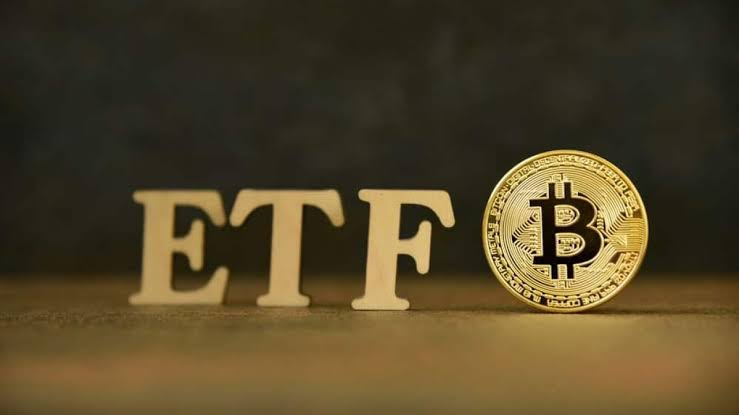In a significant development for the world of cryptocurrencies, BlackRock, the world's largest asset management firm, has filed an application with the U.S. Securities and Exchange Commission (SEC) for a Bitcoin exchange-traded fund (ETF). The news has sent shockwaves through the financial industry and the cryptocurrency community alike, as it holds the potential to bring Bitcoin further into the mainstream. In this blog post, we will explore the implications of BlackRock's move and its potential impact on the adoption and acceptance of Bitcoin.
Understanding Bitcoin ETFs:
Before delving into the significance of BlackRock's filing, let's understand what a Bitcoin ETF is. An exchange-traded fund is a type of investment fund and exchange-traded product that trades on stock exchanges. It allows investors to gain exposure to a particular asset or a group of assets without directly owning them. A Bitcoin ETF would enable investors to gain exposure to Bitcoin's price movements without needing to hold the cryptocurrency themselves. This type of investment vehicle has been eagerly awaited by many, as it offers a more accessible and regulated way for traditional investors to participate in the crypto market.
BlackRock's Influence and Expertise:
With over $9 trillion in assets under management, BlackRock commands a substantial influence over the global investment landscape. Its decision to file for a Bitcoin ETF highlights the growing acceptance of cryptocurrencies in traditional financial institutions. BlackRock's reputation, expertise, and regulatory compliance track record make it a credible player in the ETF space. Should the SEC approve BlackRock's application, it could set a precedent for other asset managers to follow suit, potentially paving the way for a flood of institutional investment into the cryptocurrency market.
Potential Impact on Bitcoin Adoption
The approval of a Bitcoin ETF could have far-reaching implications for the adoption and acceptance of Bitcoin. Here are a few potential impacts:
1. Mainstream Exposure: A Bitcoin ETF would provide mainstream investors, including pension funds, endowments, and retail investors, with a regulated and secure way to invest in Bitcoin. This exposure could lead to increased demand for Bitcoin, driving up its price and market capitalization.
2. Improved Accessibility: By eliminating the need for investors to directly hold or manage cryptocurrencies, a Bitcoin ETF would make investing in Bitcoin more accessible to a wider audience. This accessibility could encourage more people to enter the crypto market, thus expanding its user base.
3. Regulatory Oversight: The SEC's involvement in approving a Bitcoin ETF would bring an additional layer of regulatory oversight to the cryptocurrency space. This oversight could help address concerns related to market manipulation, fraud, and investor protection, making the market more attractive to risk-averse institutional investors.
4. Market Stability: A regulated Bitcoin ETF could potentially reduce the volatility often associated with the cryptocurrency market. Institutional investors typically bring stability and liquidity to the assets they invest in. The increased liquidity resulting from a Bitcoin ETF could mitigate price swings and make Bitcoin a more reliable store of value.
Conclusion:
BlackRock's filing for a Bitcoin ETF with the SEC is a significant development that underscores the growing acceptance of cryptocurrencies within mainstream finance. Should the SEC approve the application, it could be a game-changer for the adoption of Bitcoin. By providing a regulated and accessible investment vehicle, a Bitcoin ETF could attract a new wave of institutional and retail investors to the cryptocurrency market, increasing its liquidity, stability, and overall acceptance. While the outcome is yet to be determined, the move by BlackRock signals a growing recognition of cryptocurrencies' potential and the gradual integration of digital assets into traditional investment strategies.


No comments:
Post a Comment